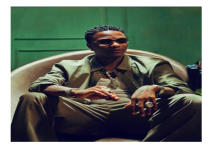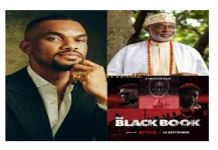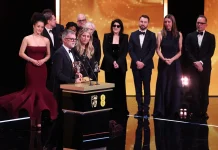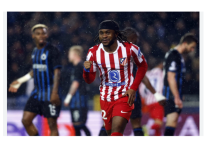One of its music’s enigmatic and influential voices, Michael Eugene Archer, known universally as D’Angelo has passed away on October 14, 2025, at the age of 51, after a private and courageous battle with pancreatic cancer, his family confirmed.
Born on February 11, 1974, in Richmond, Virginia, D’Angelo’s musical journey began in the pews of his father’s Pentecostal church. The young prodigy would sit by the piano, his fingers learning the rhythm of gospel long before fame called his name. Those soulful roots would later shape a sound that defied genres and defined a generation.
When D’Angelo’s debut album, Brown Sugar, dropped in 1995, it didn’t just mark his arrival—it reshaped R&B. With its lush grooves, smoky vocals, and spiritual depth, the record sparked the neo-soul revolution, inspiring artists like Erykah Badu, Maxwell, and Lauryn Hill. Tracks like “Lady” and “Brown Sugar” weren’t just songs—they were sensual sermons of sound.
But it was Voodoo (2000) that crowned him king. The album debuted at No. 1 on the Billboard 200, earning Grammy gold and birthing one of the most talked-about videos in music history — “Untitled (How Does It Feel)”. Stripped to its essence, both musically and visually, the track turned D’Angelo into a reluctant sex symbol and an emblem of pure artistic daring.
Then came silence. The fame, the pressure, the weight of genius—it all took its toll. D’Angelo vanished from the spotlight, battling personal demons and searching for meaning beyond the noise. Yet, like the legends he was often compared to—Marvin Gaye, Prince, and Curtis Mayfield—he returned when the world needed his voice most.
In 2014, after nearly 15 years, D’Angelo released Black Messiah—a masterpiece born from a nation in turmoil. The album was raw, revolutionary, and resonant, speaking to racial tension, justice, and identity. Critics hailed it as one of the most important records of the decade, earning him two more Grammy Awards and reaffirming his place as a visionary artist.
Even as illness crept in, D’Angelo continued creating quietly, collaborating with longtime partner Raphael Saadiq and mentoring younger musicians who revered him. Those close to him said he remained “deeply spiritual, deeply private, and deeply committed to truth in sound.”
His passing follows the heartbreaking death of his former partner, Angie Stone, earlier this year—two soulmates, gone within months of each other. He leaves behind three children and a body of work that transcends time.
Tributes have flooded social media from across the globe. Questlove called him “the heartbeat of neo-soul.” Alicia Keys wrote, “D’Angelo’s music healed and awakened us. His art was prayer.”
D’Angelo’s legacy rests not in quantity but in quality, courage, and authenticity. With just three studio albums, he changed the shape of R&B forever. His music was not made for charts—it was made for the soul.
As the world says goodbye, one thing remains certain: D’Angelo’s rhythm may have stilled, but his resonance will echo for generations to come.
































